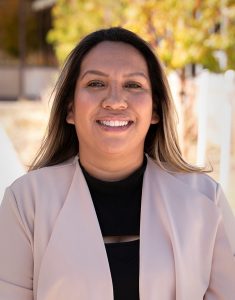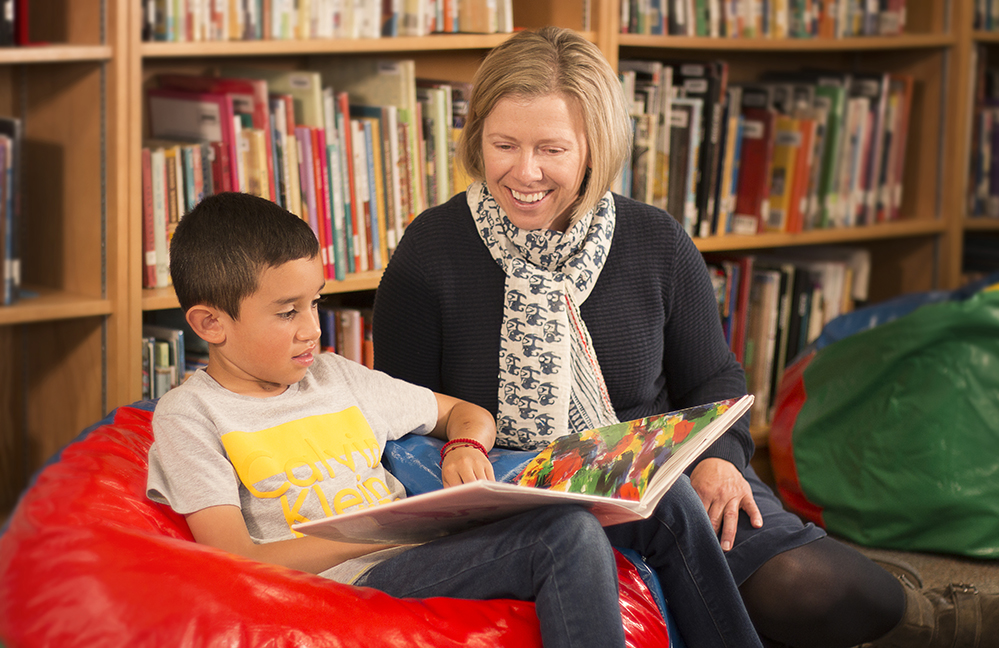A Small District in an Old Colorado Mining Town Becomes a Model for Rural School Turnaround
By Alan Gottlieb | June 29, 2020
Over the next several weeks, The 74 will be publishing stories reported and written before the coronavirus pandemic. Their publication was sidelined when schools across the country abruptly closed, but we are sharing them now because the information and innovations they highlight remain relevant to our understanding of education.
About 100 miles of mountainous terrain separate metro Denver from the old mining town of Leadville, Colorado, which sits in a valley 10,151 feet above sea level, surrounded by some of the state’s most majestic peaks.
More than many Colorado mountain communities, however, Leadville’s population is highly diverse. The town’s housing is relatively affordable, and several world-class ski resorts, including Vail and Copper Mountain, are within an hour’s drive. As a result, hundreds of resort service workers, many of them immigrants from Mexico and Central America, live in Leadville and commute to work.
The roughly 1,000-student Lake County School District reflects that diversity, both in the richness of the cultures represented and the challenges presented by educating a large number of students, many of them English language learners from low-income families.
In other words, it’s a rural school district with a distinctly urban feel — albeit one blessed with stunning mountain vistas.
Over the past eight years, under the leadership of Superintendent Wendy Wyman, a transplant from the Denver area, Leadville schools have undergone a steady transformation, from a district teetering on the brink of severe state sanctions for low performance, and distrusted by its community, to an example of how to do districtwide turnaround the right way — and in a rural context.
Melissa Hill, who has two daughters in Leadville schools, said the buzz around town has grown far more positive over the past few years. “When my kids were younger, there was this conversation kind of under everyone’s breath that the preschool and early elementary grades were fine, but get your kids out of Lake County schools before intermediate school,” said Hill, a real estate agent who has lived in Leadville for 25 years.
“Now, the culture has changed so much in the district and in all of the schools. The reputation is better, and the schools are better. Wendy Wyman has made these changes with such grace, it’s really lovely. She is not off-putting and rough and tough and mean, the way some people feel they have to be when big change needs to happen.”

While Wyman and her team are quick to point out that the district still has a way to go before they’re satisfied, improvements in academic performance, school and district culture, and community support have been notable. Philanthropic funders, primarily Denver’s Gates Family Foundation (unrelated to Bill and Melinda) and the Colorado Department of Education hold up Leadville as an example of how to approach rural, districtwide turnaround.
“Wendy has been strategic about leveraging her community, communicating with stakeholders, getting her message out, thinking creatively about recruitment and retention,” said Nicole Monet, a turnaround support manager for the state education department who has worked closely with the school district.
“So even though she’s in this rural setting, where people might say, ‘Who wants to live at 10,000 feet where it’s winter much of the year?’ and ‘It’s so small,’ she’s found a way to flip that script so it’s like, ‘Why wouldn’t you want to come to Leadville?’ She has thought outside the box about common problems some of our districts have.”
The district’s success led Wyman and her team this school year to launch an initiative called School Turnaround GPS, an outreach effort to other rural districts to impart lessons Lake County school officials have learned during the sometimes bumpy improvement process. Through a monthly newsletter sent to other rural Colorado superintendents and a website filled with resources, Turnaround GPS hopes to help other districts streamline similar efforts and avoid preventable mistakes that can slow down the transformation process.
Newsletter topics to date have included establishing trust both within the district and in the broader community; navigating peaks and valleys of turnaround; how to work with external funders, which includes learning to say no; and building school-level and district/school board capacity.
“It felt like I was seen as the minority or the kid of color and so you are going to separate me and not really pay much attention to me. I don’t see that anymore. Our teachers really do want all of our kids to thrive.” —parent Eudelia Contreras, Lake County school board president and graduate
Wyman stresses that it’s important to approach the work with humility. “We don’t have it all figured out,” she said. “We have so far to go, but we stay focused on our goals, and that makes a huge difference.”
Confronting challenges with honesty and transparency
In 2018-19, the most recent year for which data are available, Lake County’s student population stood at 1,081. Seventy percent of those students were from racial or ethnic minorities, the vast majority of them — 719 in total — Latino. About one-third of the district’s students are categorized as English language learners, equivalent to the 92,000-student Denver Public Schools. Some 61 percent of the district’s students were from sufficiently low-income families to qualify for subsidized lunches. By contrast, Denver’s low-income student population that same year was 65 percent.
When Wyman became superintendent in 2012, Leadville residents seemed almost resigned to the fact that the school system was struggling and on the verge of failing. It was common to hear griping about the schools in the diners and coffee shops that line Harrison Avenue, Leadville’s main drag.
People had reasons to complain: Just 12 percent of students were proficient on standardized reading tests and 7.5 percent on math tests in 2015. Those proficiency numbers have more than doubled over the past five years. There’s clearly still a long way to go, but the upward trajectory is steady and consistent.
As the schools’ Latino population grew over the years, there was a sense among Latino parents that teachers and administrators lacked both experience in dealing with their children and compassion for the challenges of English language learners.

Eudelia Contreras grew up going to Leadville schools and now has a daughter and step-daughter in Lake County High School. “It felt like I was seen as the minority or the kid of color and so you are going to separate me and not really pay much attention to me,” Contreras said. “I don’t see that anymore. Our teachers really do want all of our kids to thrive.”
Contreras was elected to the Lake County school board in 2018 and became its president at the beginning of this year.
One of Wyman’s first tasks when she became superintendent was to boost morale and foster camaraderie, both among the district’s staff and in the broader community. Her strategy, as paradoxical as it might sound, was to show up everywhere and be transparent and honest about how bad the situation was.
“My message was, ‘This is dire, and we need to come together and work on it,’” Wyman recalled. “We used the predicament as a lever for change in talking to our community about the fact that we had to do something fundamentally different.”
Wyman and others on her team were ace grant writers, so with more than $11 million in additional state and philanthropic funding since 2015, they dove headlong into a change process. After a couple of false starts with external partners, the district settled on working with EL Education (formerly known as Expeditionary Learning). The outdoors adventure orientation of the Outward Bound-inspired EL model fit well in Leadville, where people think nothing of heading out on a long, hilly bike ride or snowshoe trek before work in the morning.
And the EL Education model fit well with what Wyman was trying to accomplish in terms of a cultural shift within the district and its three schools. It allows students to dive deep as they explore their passions, working collaboratively on in-depth projects that can shift as students discover new areas for exploration. It places students in homeroom-like groupings called crews, where teachers get to know each student well and can keep track of their challenges and successes, intervening when necessary.

EL had another side benefit as well: its teacher-friendly orientation. “Their belief in teacher empowerment matched what I had learned about the importance of collaborative leadership and matched where our school board wanted to go and our community wanted to go,” Wyman said. “Our community is very supportive of our teachers, in part because we have such a rich mining history and a long-standing, strong union and labor orientation. We stand together in support of workers, and in education, teachers are the workers. As a leadership team we stand in solidarity with our teachers.”
Navigation bumps in the road
In 2017-18, for the first time in seven years, the Lake County School District came off Colorado’s “accountability clock” and was free to continue charting its own course without the looming threat of state intervention or even takeover. That was the year the district’s proficiency percentages soared from their lows at or near single digits into the upper 20s in English Language Arts and the upper teens in math. And measured by growth percentiles, the district was on track to continue its steady climb toward proficiency for many of its students.
Two years later, after leadership upheaval at one of its three schools — Lake County Intermediate — the school slipped to the second-lowest of four categories on state accountability measures. But because of the community’s trust in Wyman and her team, and the fact that the district moved quickly to install a strong leader for the 2019-20 school year, the news barely created a ripple in town or in the district. That’s due at least in part to how Wyman and new principal Cheryl Talbot delivered the message.
“We have a clear plan, and we framed this news to staff as an opportunity,” Talbot said. “We have a lot of new staff, so we took everyone on a journey along the timeline of how we got where we are. It helped a lot of people understand the context and that we are headed in the right direction. If we attend to our work plan goals, we’ll get there.”
As soon as Wyman learned about the rating dip, she fired off an email to all district staff. Unlike when she first arrived and had to deliver bad news to get people motivated, this time she downplayed what could have, if handled badly, demoralized people.
“No doom and gloom,” Wyman said. “I told them we are all in this together, and that turnaround is like climbing a mountain. Sometimes you have to lose some elevation to find the best route to the top.”

Wyman and her communications team decided to use this bump in the road as a teachable moment, and they made it the focus of the November Turnaround GPS newsletter.
The lessons here for other school districts and superintendents are invaluable, Wyman said. “The reason we’ve had the success we’ve had is that we’ve been transparent and truthful and have maintained a growth mindset even when things have been challenging,” she said. “It’s important to keep moving forward and to keep everyone going in the right direction.”
District leaders have also helped the community look at their schools in a new light.
“We’ve really weaned ourselves off test score anxiety,” said Lake County school board vice president Amy Frykholm. “The ultimate goal isn’t for scores to go up. It’s to provide a rigorous and engaging education for our kids. And the opportunities kids have here now, the projects they’re engaged in, the way educators are going about their jobs — all that is much more powerful than a dip in scores.”
Lead image: Lake County School District’s football field, with the Colorado Rockies rising in the background. (Danny Dodge, Roadrunner Productions LLC)
Help fund stories like this. Donate now!
